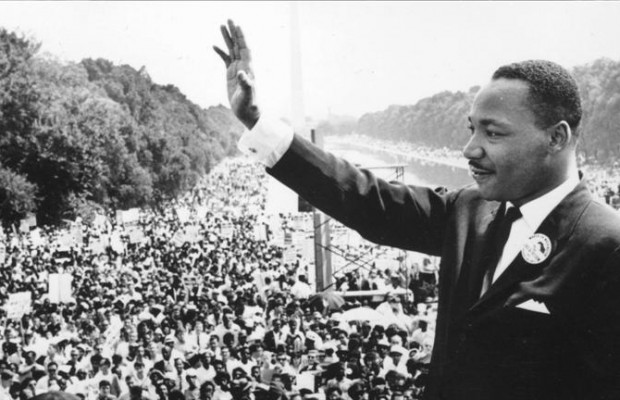MLK Day reminds us to fight for The Dream

The timeless words of Martin Luther King Jr. are not to be forgotten: “I have a dream that my four little children will one day live in a nation where they will not be judged by the color of their skin but by the content of their character.”
August 28, 1963 was a memorable day for African Americans and other minorities alike. This was the day that Martin Luther King Jr. delivered a speech which changed the course of history by uniting us all.
King’s speech, “I Have A Dream,” has echoed in the hearts of minority communities throughout the years. Starting in 1983, to commemorate his unifying act, president Ronald Reagan created Martin Luther King Day, celebrated officially on the third Monday of January each year. This year, MLK Day fell on Jan. 16, but unofficially, African Americans celebrate Martin Luther King Day every day. It is because of King that they no longer have to use segregated bathrooms and schools based on the color of their skin.
To be able to witness the day that “little black boys and black girls will be able to join hands with little white boys and white girls as sisters and brothers” was King’s hope.
Thanks to the progress that he and other activists inspired, the laws separating blacks and whites gradually came to an end, and now, no state is allowed to “deprive any person of life, liberty, or property, without due process of law; nor deny to any person within its jurisdiction the equal protection of the laws,” as stated by the 14th Amendment.
The evidence pointing in the direction of positive change is vast. “We’ve had an African American president, for instance. The outward racism that once existed in our country is gone, at least by law,” Steve Johnson, history teacher, said.
However, some have not honored all of what King did to bring two seemingly different worlds together. In his speech, King said, “We can never be satisfied as long as the Negro is the victim of the unspeakable horrors of police brutality.” Despite the change and progress we have made in the past half-century, blacks in some areas are still facing systematic racism and undue prejudice.
Kyle Reusch, sophomore, believes that King’s message to judge others based on content rather than the color of skin needs more emphasis in today’s society. “We need to stop paying attention to race as much,” Reusch said. “We should focus on what people have accomplished and what their actions are.”
Martin Luther King Jr. wanted to see a world of equality; with the current problems of police brutality, xenophobia, and an uproar of racist rhetoric, the dispute of whether MLK’s dream was truly achieved or not comes into perspective.
Audrey Washington, sophomore, believes King’s dream has been “sort of’ achieved. “There’s a Black Lives Matter movement, so it’s not completely fulfilled, but I’d say it’s definitely better than how it was during [King’s] time,” she said.
Hailey Washington, sophomore, agrees with her twin Audrey on this matter. “A lot of [the dream] has been achieved,” Hailey said. “It’s not perfect, but nothing is truly perfect.”
Johnson also agrees with the Washingtons, believing that many events on the news and in courtrooms still depict racism. “I think we still have work to do. I think that the dream is maybe more in reach than it was in 1963, when it really was a dream that a lot of people thought would ever happen,” Johnson said. “I think people still need to heed his lessons as we keep working for it. I don’t think you can stop and be satisfied.”
The ways to achieve King’s goal of equality are many. Roche gives the advice to “focus on what people have accomplished and what their actions are, not just where they come from and who they are.”
Johnson also believes that people should reach beyond their personal boundaries. “When we get out of our comfort zone and interact with people that may not have a shared experience, we realize that we are all Americans, we are all members of the human race, we have so much more in common than we realize,” he said. “And by learning from the experiences of other people, I think we grow ourselves and become more tolerant and more accepting and more inclusive as individuals.”
He also advises us not to forget the dream. “If we remember that his lessons apply to lots of the issues we see confronting us today, then the dream doesn’t die, and we can come closer to realizing it.”

